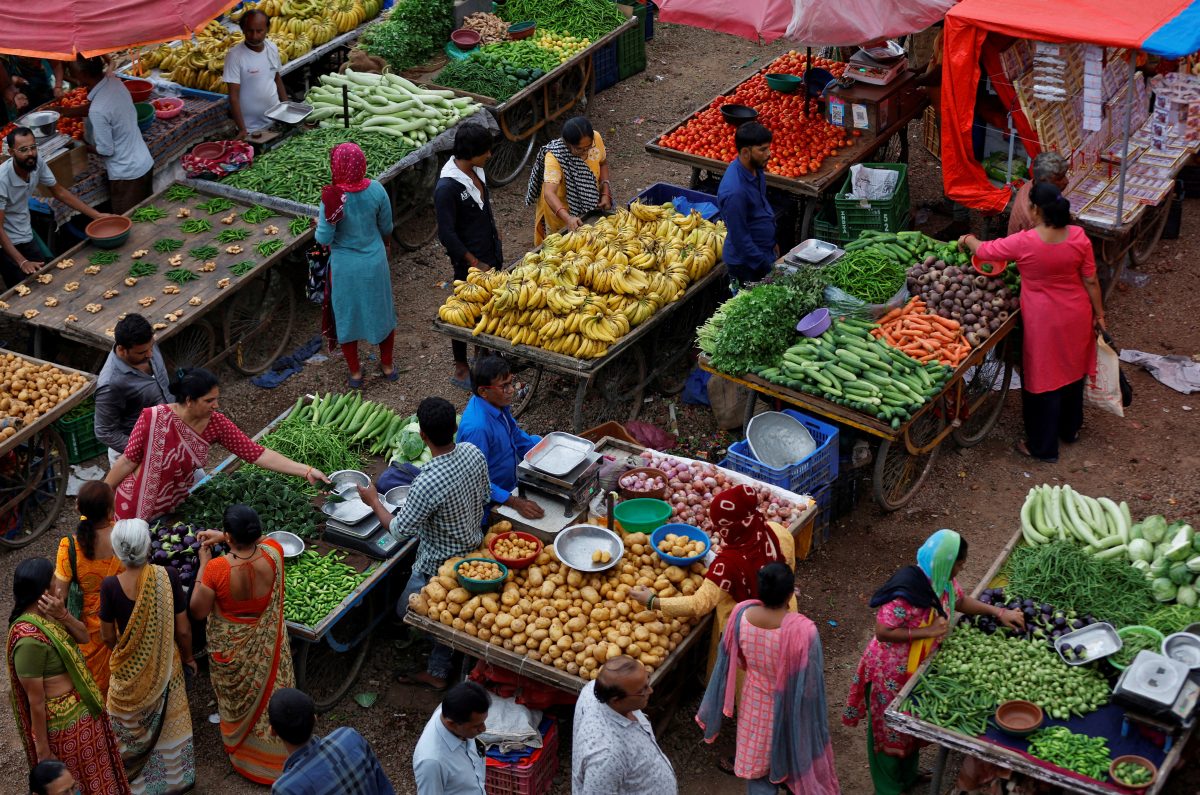NEW DELHI, (Reuters) – India’s economic growth slowed to 6.7% year-on-year in the April-June quarter as a decline in government spending during national elections weighed, data showed today, but it remained the world’s fastest-growing major economy.
The rise in gross domestic product INGDP=ECI was less than a 6.9% expansion forecast by a Reuters poll, and compared to 7.8% growth in the previous quarter.
Still, it was faster than 4.7% growth in China, Asia’s biggest economy, in April-June, and India’s slowdown is expected to be temporary as economists forecast that easing inflation and a pickup in government spending will shore up growth in the coming months.
Political uncertainty also weighed on investment and consumption during the April-June quarter, the official data showed.
The Gross Value Added (GVA), seen by economists as a more stable measure of growth, increased by 6.8% in April-June from a year earlier, compared to 6.3% in the previous quarter.
Upasna Bhardwaj, chief economist at Mumbai-based Kotak Mahindra Bank, said the GDP numbers were softer than expectations but the GVA remained firm with non-farm growth holding up.
“We retain our GDP growth expectations of 6.9% in 2024/25, aided largely by rural demand and government spending while watching closely the likely fatigue in urban demand, private capex and pace of global slowdown,” she said.
For the full fiscal year, India’s central bank expects the economy to grow 7.2%, slower than the 8.2% growth the previous year, dragged down by a contraction in state spending and the central bank’s tightened rules on retail loans.
Government spending in real terms fell 0.2% year-on-year in April-June, compared to a 0.9% rise in the previous quarter, data showed.
Prime Minister Narendra Modi has taken several steps to boost the economy since recent electoral national elections, in which his Bharatiya Janata Party (BJP) failed to win an outright majority and is having to rely on allies to run the government for the first time in a decade.
Manufacturing, which makes up about 17% of India’s GDP, grew by 7% year-on-year in the April-June quarter, compared to an 8.9% expansion in the previous quarter.
Agricultural output rose 2% year on year in the same period, up from 1.1% in the previous quarter. Plentiful rainfall this year is expected to enhance farm output, rural incomes and consumer demand, a trend reflected in increased sales of two-wheelers and tractors in July.
JOBS CHALLENGE
Despite strong growth relative to other economies, India faces challenges in job creation and more inclusive economic growth. These issues have affected real wages, household consumption among lower-income groups, and private investments.
The government has stepped up spending with last month’s $576 billion annual budget, which includes billions of dollars for affordable housing and rural jobs, to stimulate economic activity.
Consumer spending, which constitutes about 60% of GDP, rose 7.4% in April-June from a year earlier, compared to 4% in the previous quarter. Capital investments also rose by 7.4% compared to 6.5% in the previous quarter.
Economists anticipate that easing retail inflation could lead the central bank to cut its policy rate later this year, potentially boosting household consumption and supporting private investments.

